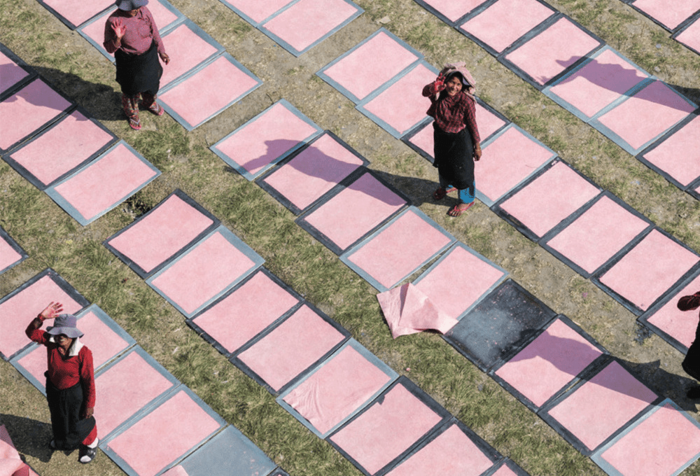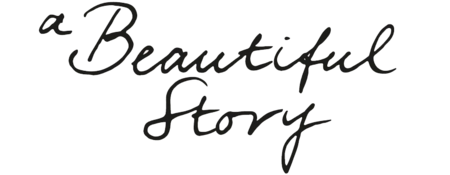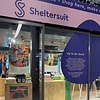In conversation with Return to Sender

First of all, let’s tell you a bit more about UpToDoGood and what we do. UpToDoGood is a movement with the mission to make the world more beautiful, fairer and more sustainable. In short; doing good!
We do this by selling products in our airport store and online shop that are well made and do good in every way you look at them. With the proceeds from their sales, we support charities such as Human Rights Watch, De Voedselbank, Onetreeplanted, Klabu and many more great initiatives. In addition, we draw attention to all kinds of good initiatives on our socials, website and in the store. We have impactful exhibitions in the store that change on a regular basis.
We would like to continue to inform you about the state of affairs in the world, while at the same time give you a good feeling and draw your attention to beautiful products that are also really beautifully made. What counts for us is that every small change in our daily lives can make a lot of change. That’s why our mission is to generate impact to make the world more beautiful, fairer and more sustainable.
Up To Do Good interviews Return to Sender
In this post I would like to focus on a special organization: Return to Sender (“RTS”). Since its foundation in 2006 by Katja Schuurman, Tessa Vos and Maarten van Huijstee, this foundation has been on a mission to improve the living conditions of women through sustainable and fair trade. They do this by positively connecting talented women from Africa and Asia to the Western market. Now, 15 years later, they have been able to support and create no fewer than 9700 jobs, and sold more than 2 million – unique – products through their sales channels. The RTS collection is of-course also available at UpToDoGood.
What is the story behind RTS? I spoke with Daphne van 't Hof. She is the social media and impact manager of RTS.
A better life
In short, the message of RTS is to reduce poverty by creating local employment. Selling products from underprivileged female communities creates a flow of income, which can help break the cycle of poverty. “It’s our greatest mission to have a continuous flow of orders, so that they are always busy and can build a steady life.”
To tell you a good example of this model we have to go to Mali. A country that is struggling with a war and extreme heat as a result of climate change, which puts pressure on the quality of life. Nevertheless, 16 Malian women from the Here Bugu community manage to turn the tide and build a life by making bracelets. The bracelets shown below not only provide a collection of beautiful jewelry, but also increase the independence and stability of the local population. “There's so much growth in that community, it really is a success story.”
Trust in each other
RTS really contributes on a significant scale to a positive change in the living conditions of women from different countries and cultures. It is therefore important in the collaboration that cultural differences are properly dealt with, and sometimes that can be somewhat difficult. “It's about not only seeing from our own eyes, but much more standing next to them instead of facing them.” This is done, for example, with intermediaries or locals who lead projects. By maintaining a lot of contact with the producers, a learning process about the cultures is created, which ultimately increases mutual trust. “It's about patience, time and growth.”
Living wage
In addition to creating employment and bridging cultural differences, RTS is also actively involved in improving the living situation. With the 'Living Wage Project' they focus on, among other things, providing financial training to employees. The aim is to create awareness so that women receive a fair wage for their work, instead of the usual minimum wage. “Better wages mean that your employees are healthier, that they enjoy coming to work and that they also feel more responsible.” In addition to the living wage, bonuses are also paid to employees every quarter.
Perspective
Finally: what will RTS focus on in the near future? “The most important thing for the producers is that continuity is guaranteed and that we slowly attract all producers to the living wage.” For customers, this means that with every purchase of, for example, a basket, a saucer or a bracelet, you contribute to a better living situation for the producer. “By doing this, we achieve that another woman elsewhere in the world can build a life and a future for the next generations.”
Do good: With your purchase you give back to nature and society





















